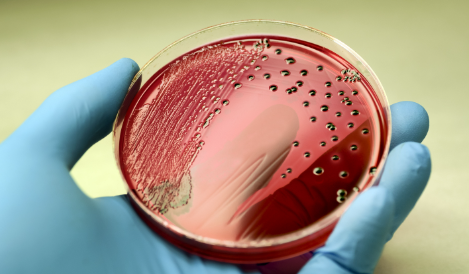
Salmonella Infection: Causes, Symptoms, Treatment
Salmonella infection, also known as salmonellosis, is a common bacterial illness caused by various strains of the Salmonella bacteria. It can affect both humans and animals, and it is typically transmitted through contaminated food, water, or contact with infected animals. Here’s an overview of the causes, symptoms, and treatment of salmonella infection:
Causes of Salmonella Infection:
Salmonella infection is caused by the ingestion of Salmonella bacteria, which can be found in various sources, including:
- Contaminated Food: Raw or undercooked eggs, poultry, meat (particularly ground beef and pork), and unpasteurized dairy products are common sources of salmonella contamination. Fruits and vegetables can also become contaminated if they come into contact with infected animal products or contaminated water.
- Cross-Contamination: The bacteria can spread from contaminated surfaces, cutting boards, or utensils to other foods if proper hygiene practices are not followed during food preparation.
- Infected Animals: Salmonella can be present in the feces of infected animals, including reptiles (e.g., turtles, snakes), birds (e.g., chicks, ducks), and some household pets. Handling these animals without proper handwashing can lead to infection.
- Contaminated Water: Drinking untreated or contaminated water, particularly in areas with poor sanitation, can lead to salmonella infection.
Symptoms of Salmonella Infection:
The symptoms of salmonella infection can vary in severity and typically appear 6 to 72 hours after exposure to the bacteria. Common symptoms include:
- Diarrhea: Diarrhea is a hallmark symptom of salmonellosis and can range from mild to severe.
- Abdominal Pain: Abdominal cramps and discomfort are often present, along with diarrhea.
- Fever: A fever is common and may be accompanied by chills.
- Nausea and Vomiting: Some individuals may experience nausea and vomiting.
- Headache: Headaches can occur as a result of the infection.
- Muscle Pain: Muscle aches and weakness can be present.
- Dehydration: Severe cases of salmonella infection can lead to dehydration, particularly in vulnerable populations such as young children, the elderly, and individuals with weakened immune systems.
Treatment of Salmonella Infection:
In most cases, salmonella infection resolves on its own without the need for medical treatment. However, the following steps can help manage the infection and prevent complications:
- Hydration: Staying well-hydrated is essential, especially if diarrhea and vomiting are present. Drink clear fluids like water, oral rehydration solutions, and clear broths to prevent dehydration.
- Rest: Get plenty of rest to help your body recover from the infection.
- Avoid Certain Medications: Over-the-counter anti-diarrheal medications may not be recommended, as they can prolong the infection by preventing the body from eliminating the bacteria.
- Medical Care: Seek medical attention if you have severe symptoms, such as high fever, persistent diarrhea, signs of dehydration, or if you are in a high-risk group (e.g., young children, elderly, immunocompromised individuals). In some cases, antibiotics may be prescribed by a Gastroenterologist in Lahore.
- Prevent Spread: Practice good hand hygiene by washing your hands thoroughly with soap and water after using the restroom, changing diapers, handling animals, and before preparing or eating food. Ensure proper food safety practices, such as cooking poultry and meat thoroughly and avoiding cross-contamination in the kitchen.
- Isolation: If you have a confirmed or suspected case of salmonella infection, it’s important to avoid preparing food for others until you are no longer contagious.
It’s worth noting that certain strains of Salmonella bacteria, such as Salmonella typhi (which causes typhoid fever) and Salmonella paratyphi (which causes paratyphoid fever), can cause more severe and systemic illnesses. These infections may require more specific treatment, including antibiotics.
Preventing salmonella infection is essential. Practicing good food safety habits, proper handwashing, and avoiding contact with infected animals are key preventive measures. Additionally, if you are planning to travel to regions with higher rates of salmonella infections, consider vaccination options, such as the typhoid vaccine, if recommended by a Gastroenterologist in Karachi.






